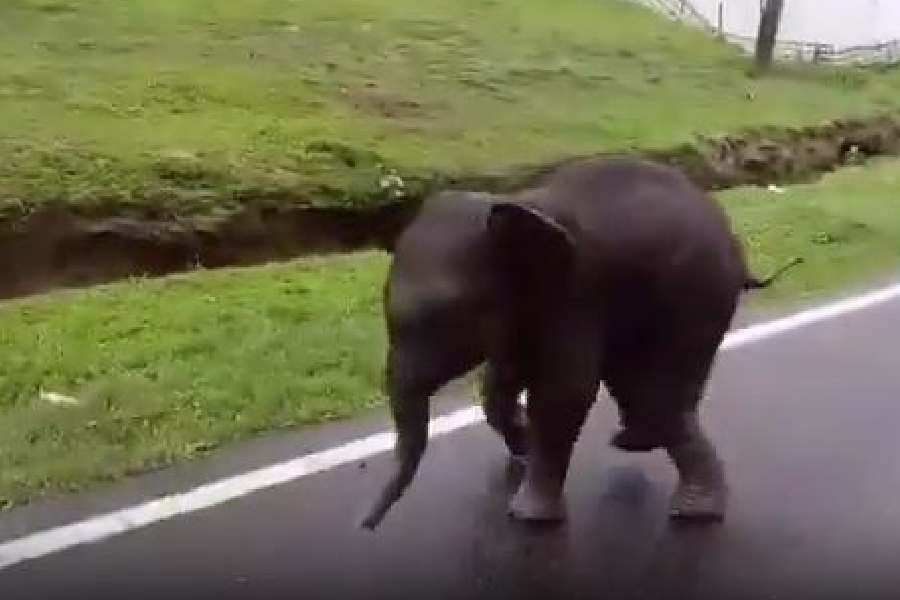A two-month-old elephant calf that had strayed from its herd in Assam’s Kaziranga National Park has been successfully reunited with its mother. A widely shared video shows the baby elephant, first disoriented, and then walking away into the forest with its mother.
The calf, Chotu, found alone and distressed by residents of Borjuri village near the park, was initially scared. Locals alerted the authorities, and the rescue mission began by a dedicated forest team, led by Dr Bhaskar Choudhury, a veterinarian well-known for his work with wild animals.
The reunion, captured on camera, shows the calf walking into the forest, where its mother was standing. As the calf approaches her, a forest official can be heard shouting encouragingly, “Ja ja ja (go go go)!”
In the video shared by Susanta Nanda, a retired Indian Forest Service officer, a forest official is seen rubbing the calf with the mother’s dung on its trunk and legs. This traditional technique, used to mask the human scent on the calf, was crucial in ensuring that the mother recognised and accepted her baby.
“Chotu got separated from mother at Kaziranga. It was united later with its mother. The forest officials applied mother's dung to the calf to suppress human smell. Happy reunion at the end,” wrote Mr Nanda on X.
The video has already garnered over 47.7 lakh views.
What’s moved people the most is not just the reunion itself, but the care with which it was handled. “Nature has its own language and forest officials spoke it with heart. What a thoughtful and beautiful reunion,” commented one user.
“Happy reunion,” said another. “Oh this is such a beautiful story. Thank you,” read a third.
Elephants are matriarchal and interdependent. A herd is led by an older female, the matriarch who guides the group, remembers key locations, and protects them from threats.
An infant elephant is born largely helpless. In the initial months, it stays close to the mother, maintaining physical contact, often tripping, falling into holes, and requiring help to get back on its feet.
Unlike most mammals, who are born with brains nearly 90 per cent developed, elephant calves have brains weighing only 35 per cent of their adult weight at birth. That means they, like humans, learn most of their social and survival skills post-birth from their mothers and herd members.
These early months are critical, and a calf separated from its family is not just emotionally shaken but biologically vulnerable.











